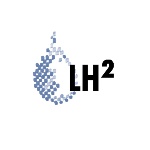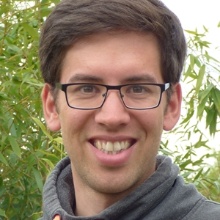Simon Emmert, Doktorand am Lehrstuhl für Hydromechanik und Hydrosystemmodellierung (LH2) und im SFB 1313 wird am Donnerstag, den 17. Dezember 2020 ihre Doktorarbeit mit dem Titel "Developing and Calibrating a Numerical Model for Microbially Enhanced Coal-Bed Methane Production" verteidigen.
Datum: Donnerstag, 17. Dezember 2020
Uhrzeit: 14:30 Uhr
Ort: MML, U. 1.003, Pfaffenwaldring 61, 70569 Stuttgart
Aufgrund der aktuellen Situation dürfen nur die Mitglieder der Prüfungskommission am Promotionsvortrag teilnehmen. Eine Zuhörerschaft vor Ort ist nicht erlaubt. Interessenten können sich den Vortrag per Videokonferenz anschauen. Die Zugangsdaten können bei Stefanie Siegert eingeholt werden.
Abstract
Microbially enhanced coal-bed methane (MECBM) production is an innovative idea to stimulate biogenic coal-bed methane production by providing methanogens and nutrients to the coal and, thus, enhancing the microbial conversion of coal to gas. However, little is known about the environmental conditions favourable to MECBM production, or the details of interactions of microbes and nutrients that promote methane production in the subsurface.
The relevant processes of MECBM production and their interactions are comprised in a conceptual model, including flow and transport of fluids as well as micro-biological and geo-chemical reaction processes. The reactions are calibrated with experimental batch data. The model is extended and compared to column reactors where the model revealed important insights into the mechanisms involved in flow and transport of amendments and into the importance of biofilm growth, detachment, and re-attachment of microbial cells.
The thesis has furthermore produced results on parameter sensitivities, which are valuable for designing further experimental studies in order to put the emphasison the most sensitive parameters. Last but not least, the field of computational efficiency with an investigation of operator splitting schemes is briefly addressed. It is envisioned to apply the developed numerical model for a transfer to the field-scale and the design of a corresponding setup in the field in the future.
Kontakt



